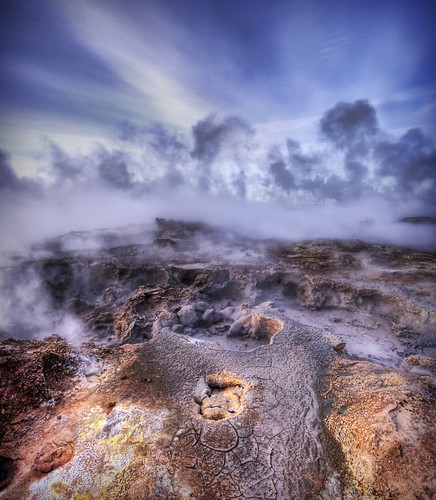Iceland is a Nordic country between the North Atlantic and the Arctic Ocean. It has a population of 325,671 and an area of 103,000 km², making it the most sparsely populated country in Europe. Wikipedia.
The National Anthem Lofsöngur" ("Hymn"), also known as "Ó Guð vors lands" ("O, God of Our Land"), is the national anthem of Iceland. The lyrics are by Matthías Jochumsson and the music by Sveinbjörn Sveinbjörnsson.
The anthem contains three stanzas, but only the first one is commonly sung. The melody might be considered difficult to sing, as it requires a vocal range of a minor fourteenth. That the anthem is essentially a hymn has been the subject of controversy in recent time.
Coat of arms of Iceland Íslenska : Skjaldarmerki Íslands (Photo credit: Wikipedia)
According to Landnámabók, the settlement of Iceland began in AD 874 when the chieftain Ingólfr Arnarson became the first permanent Norse settler on the island. In the following centuries, Norsemen settled Iceland, bringing with them thralls of Gaelic origin. From 1262 to 1918, Iceland was ruled by Norway and later Denmark. The country became independent in 1918 and a republic in 1944.
In the wake of the crisis, Iceland instituted "capital controls" that made it impossible for foreign investors to take money out of the country, leading to the Icesave dispute. The economy has since then made a significant recovery.In 1994, Iceland became party to the European Economic Area, which supported diversification into economic and financial services. In 2008, affected by the worldwide crisis, the nation's entire banking system systemically failed, resulting in substantial political unrest.
Iceland has a free-market economy with relatively low taxes compared to other OECD countries. It maintains a Nordic social welfare system that provides universal health care and tertiary education for its citizens.
Iceland ranks high in economic, political and social stability and equality. In 2013, it was ranked as the 13th most-developed country in the world by the United Nations' Human Development Index.
Icelandic culture is founded upon the nation's Norse heritage. Most Icelanders are descendants of Norse and Gaelic settlers. Icelandic, a North Germanic language, is descended from Old Norse and is closely related to Faroese and West Norwegian dialects.The country's cultural heritage includes traditional Icelandic cuisine, Icelandic literature and mediaeval sagas. Iceland has the smallest population of any NATO member and is the only one with no standing army.


No comments:
Post a Comment